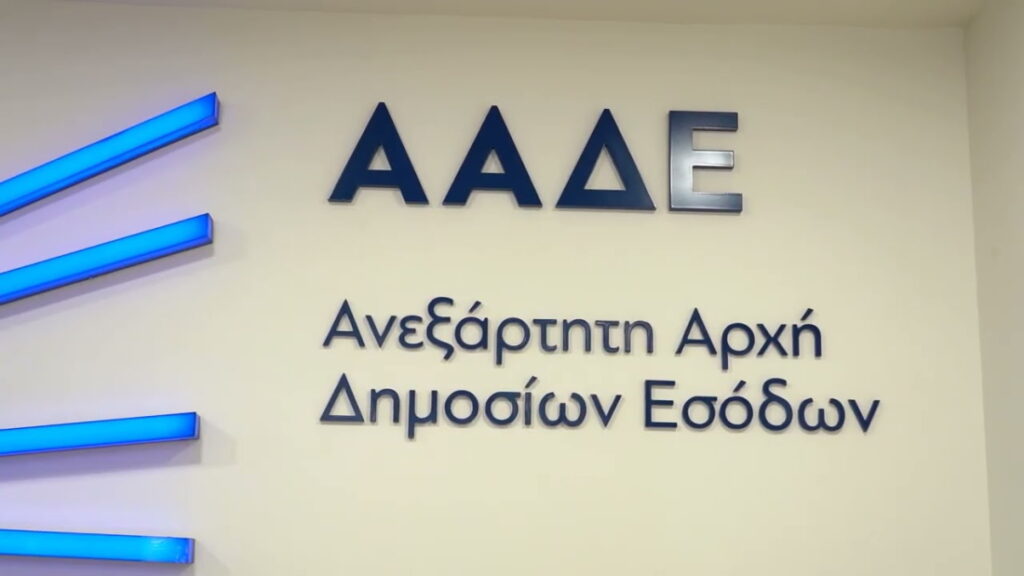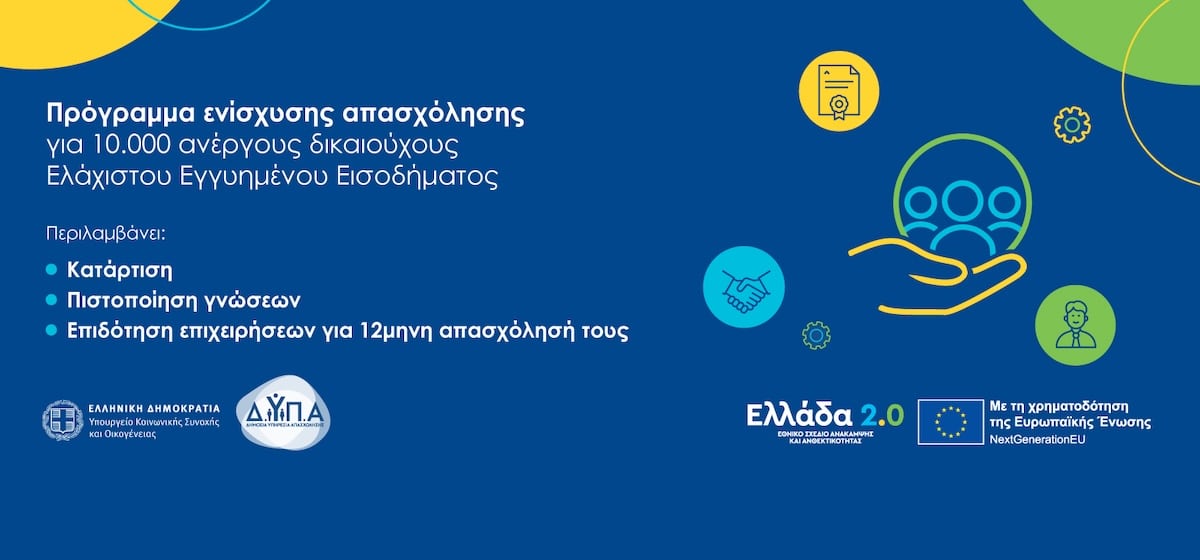
An attempt to clarify the landscape regarding the possibility of over-indebted households that have a court decision under Law 3869/2010 (Katseli Law) to adjust their debts, in order to write off the balance of the debt to the tax administration, attempts with a circular of the Hellenic Tax Authority.
The circular of the governor of the AADE George Pitsilis, clarifies the cases for the possibility of exemption of the debtor from the balance of his debts to the Tax Administration, but also the cases in which the exemption is lost, "revive" the debts and the auction procedure of the main residence is activated.
In particular, as set out in the AADE circular:
1. Debtors who have included their debts in the regulation of Law 3869/2010 are exempted from "any existing debt balance" and from the claim of the State if the following conditions are met:
- The claim of the State as a creditor has been included in the debt settlement plan included in the debtor's application before the competent Magistrates' Court and has not been excluded by the court.
- The debtor's application for the inclusion of his debts in the law has been served. 3869/2010 to the State.
- Has the debtor complied with the arrangement of his debts, in accordance with the court decision and the law, in the prescribed payments within the three-year period, to all creditors.
- In other words, it is not sufficient for the debtor to comply with the normal performance of his obligations towards the State, but it is necessary for him to comply with all creditors whose claims are covered by the court settlement.
2. The debtor is exempt for debts:
- which are due to the Tax Administration from the State or for the benefit of third parties
- individual, i.e. certified to the debtor's VAT number or to the VAT number of a third party. However, debts for which the debtor is solely responsible, such as debts arising from inheritance, or
- by joint and several liability, i.e. certified to the TIN of a third person, for the payment of which the debtor is jointly and severally liable with that person. Prerequisite to are regulated by the court decision of n. 3869/2010
3. The debtor is not exempted from established debts that,
- while they were included in their application for inclusion in the law 3869/2010, were excluded and not regulated and
- which were not included by the debtor in his application or included in the proceedings by the court
4. In any case, the discharge of the outstanding debt shall be effected only in favour of the applicant debtor who was subject to the protective provisions of Art. 3869/2010 and has no effect on the liability of any third persons who are jointly and severally liable with him against the State (e.g. co-obligors, guarantors). The liability of such persons shall continue to exist.
How debt cancellation will be done according to the ADPE's proxy
5. In order for the debts for which the debtor has been discharged to be definitively written off, the following conditions must be met:
- The court decision by which the debts were settled in accordance with the law must have become irrevocable. 3869/2010.
- The time limit for applying for a rebate must have expired. That is, 2 years must have elapsed from the date of the discharge without the creditor having applied for a waiver or, if a waiver has been applied for, without a final decision rejecting it.
- There must be no other debtors/responsible persons other than the exempt debtor for the debts subject to the exemption.
- If the court decision excludes the debtor's main residence from the sale, the repayment of the instalments specified in the decision must be completed
Auction of a house
6. A debtor who has been exempted from the balance of debts is faced with the termination of the arrangement by the creditor and the activation of the enforcement procedure against his/her main residence if he/she is at least four monthly instalments in arrears.
7. Exceptionally and notwithstanding the exemption, even debts for which the debtor is exempted are reported by the Tax Administration:
- the liquidator, if appointed to proceed with the sale of the debtor's assets.
- In case of enforcement on the debtor's main residence, due to the termination of the arrangement.
The debtor's discharge is reversed if the Court accepts an application for relief, which may be brought by a creditor within 2 years of the discharge taking effect.
The application for deduction is submitted by any creditor, if the debtor, through fraud or gross negligence:
- has breached the duty to make an honest declaration of assets and income; or
- has failed to include in the list of creditors some of its creditors




